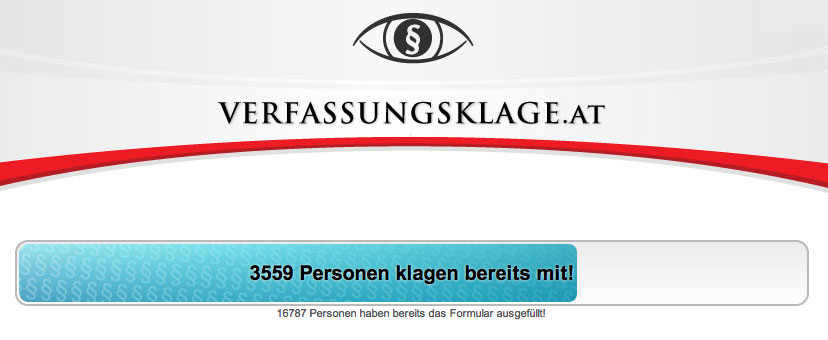Earlier this year, there was a pretty impressive wave of protests in Europe and the US. The bone of contention was SOPA/PIPA/ACTA, proposed legislation that would have a wide-ranging impact on how we use the World Wide Web, and all in the name of the law and for the sake of crime prevention. Incursions into our private sphere and the extent of the measures called for were so absurd that lots of people decided they had finally had enough—protesters took to the streets and their dissent proliferated online. Large companies and small websites got involved; the number and diversity of those opposed to these laws is impressive indeed.
And you could make the case for the protest having been successful. SOPA and PIPA were withdrawn in the US Congress, the process of ratifying ACTA was halted, and it seems as if telecommunications data retention might also possibly be reversed. But the next initiatives are already on the drawing board.
CISPA, legislation proposed in the US in December 2011, has taken center stage now that SOPA/PIPA have been put on the back burner. But the objective remains the same: control. The primary aim of this bill is to make it easier to fight copyright violations. And, of course, just as in the case of SOPA and PIPA, here as well we could say: “The USA can do whatever the hell they want; that has no effect on us.” Until you become aware of just how many companies are affected by this proposed legislation. On the internet, national borders have no effect anymore. So it’s a good idea to keep an eye on developments overseas too.
The problem with this matter is, of course, a fundamental one. Copyright law, particularly with respect to intellectual property, has lost touch with digital reality. So have the entertainment industries—the promulgators of films, music and computer games—that have failed to develop a business model attuned to modern times. Instead, they’re trying to implement stricter legislation and all sorts of regulations to saddle a horse that, if it isn’t already dead, is at least ready to be put out to pasture.
The bizarre upshots these copyright violations will eventually yield are illustrated by a recent case in Germany. A Facebook user received a written warning from a Cologne law firm because a friend posted a copyrighted photo of a rubber duck to the user’s Facebook wall. It’s almost as if some stranger glued a copyrighted poster to the wall of your house with a note attached to it that the owner of the house had nothing to do with putting it up, and the holder of the copyright warns the house owner anyway. Maybe you think this is funny. Or dangerous. In any case, if the proposed laws are enacted, they can work together with telecommunications data retention to create some truly unpleasant situations. Even for folks who have nothing to hide.
“Out of Control – What the Web Knows about You” is an exhibition at Ars Electronica that addresses these very issues and shows how comprehensively the internet is already informed about us. The opening is set for the evening of April 18 . One of the featured guests will be Max Schrems, an initiator of Europe vs. Facebook. It would certainly behoove you to visit this exhibition and find out more about the traces you’ve been leaving behind online.

A brief reference to an event on the subject of telecommunications data retention: Verfassungsklage.at cordially invites you to an informational event today in Vienna:
• Andreas Krisch, chairman of AKVorrat.at, VIBE.at
• Albert Steinhauser, spokesperson of the Green Party on legal matters, and
• Christof Tschohl, Ludwig Boltzmann Institute for Human Rights
will take questions from the audience.
When & Where:
Friday, April 13, 2012, 7:30 PM
Metalab, Rathausstrasse 6, 1010 Vienna
(Free admission)
